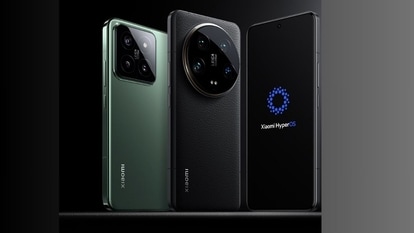Passwords: Our inclination and aversion to them
Using the phone as the password seems to be the latest experimental method Microsoft and Google are testing.

Remembering and entering passwords has to be the most mundane while equally essential task in our daily lives online and offline. Phone screen, Facebook Timelines, Twitter Feeds, everything is an ID and password away. We ask most of them to remember that we logged in, but for others, it can range from a once to dozens of times that we enter a pin, pattern or password.
Everyone from Apple, Google to Microsoft is trying to change that.
PASSWORDS
This key associated with the dots that cloak the letter that make up your password are the only authentication method that have managed to survive the test of time.
PATTERNS
Connecting the dots has been popularised by the Android phones but never went mainstream. Microsoft used an iteration on Windows 8 called the picture unlock, but like the OS' fate, it too was dark.
TOUCH ID
Apple put a fingerprint scanner on the iconic home button of its iPhones and within 3 years, every phone maker has experimented with a fingerprint scanner on their phones. Besides Asus' and Moto's, all flagships have a fingerprint scanner built-in making it the next most popular way to unlock phones after passwords.
TATTOOS
This was one of the coolest but impractical solution. Motorola phones with NFC from 2014 could be unlocked by body stickers that were meant to resemble tattoos. With a tiny NFC chip built in, every tattoo was different, itchy and a trend that barely lasted a month.
Read more: Would you doodle to unlock your smartphone?
SMART LOCK
This is Google's attempt at being Jedi. Android phones use sensors to guess if they are in their master's hands. Multiple settings like on-body-detection and safe bluetooth device use multiple parameters to calculate if its okay to not ask for a password. Even though its not the most accurate, it's fairy convenient until it gets you in trouble.


USING YOUR PHONE
This seems to be the latest pill companies are planning to test on us. Microsoft and Google are testing ways to make the login process on computers and browsers easier via notification or an app on your phone.
The Google way is to send a notification for Chrome or Gmail (old Google+) sign in by sending a notification on your phone to check if it actually is you who's trying to access the account.


Microsoft, wants you to carry an app on your phone that has a list of your devices which can be unlocked with just a tap.
Read more: You're not secure: Smartphone fingerprint sensors fooled by printouts
Some of these have worked and others have lost relevance with time, but for now, fingerprint scanners don't seem to be going away anytime soon.
Catch all the Latest Tech News, Mobile News, Laptop News, Gaming news, Wearables News , How To News, also keep up with us on Whatsapp channel,Twitter, Facebook, Google News, and Instagram. For our latest videos, subscribe to our YouTube channel.


























